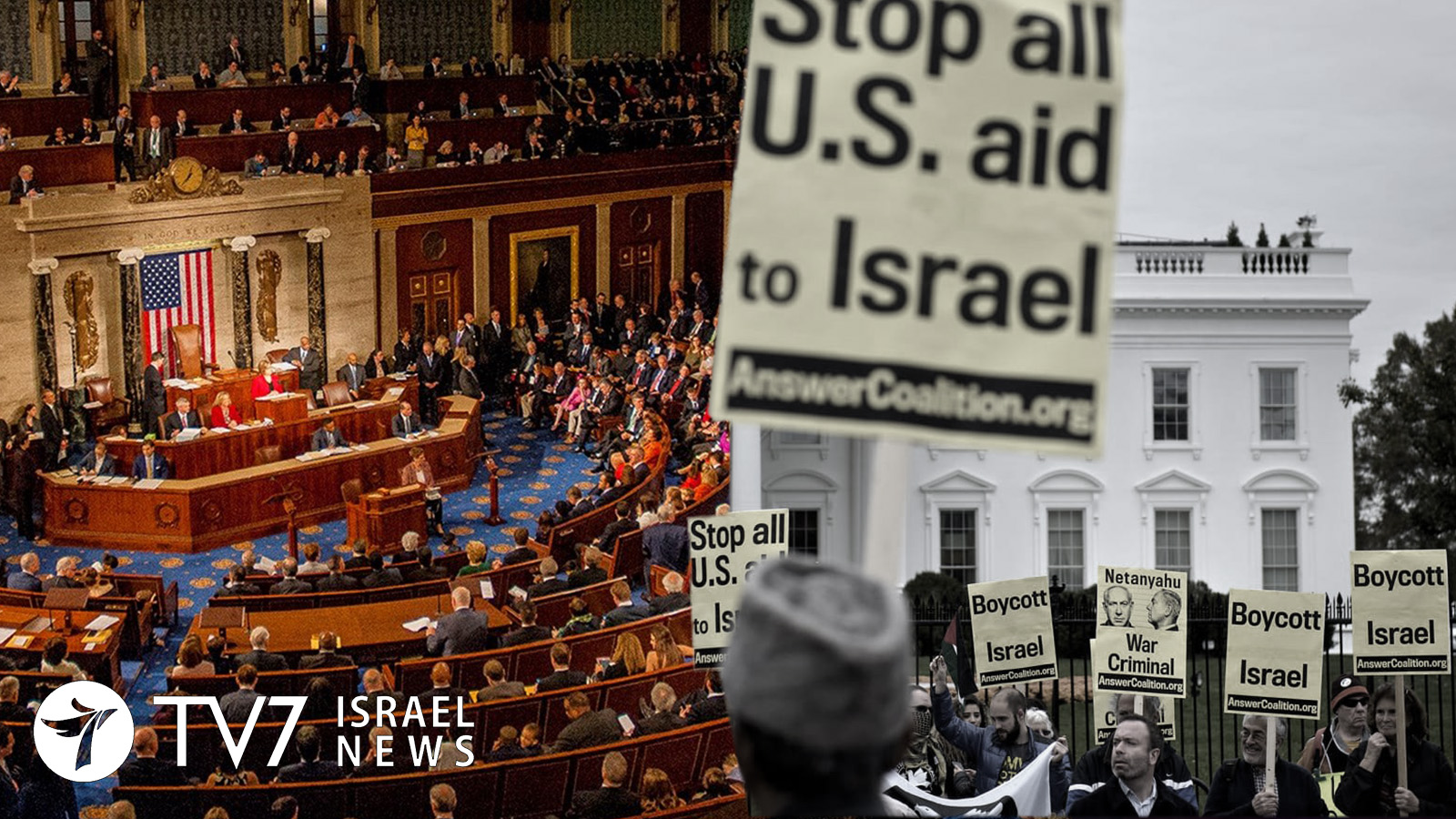In a rare display of bipartisanship, the U.S. House of Representatives passed a resolution condemning of the boycott, divestment, and sanctions (BDS) campaign against Israel with an overwhelming vote of 398 in support, 17 against, and five abstentions.
House Resolution 246 also called for increased U.S. security aid to Israel and supported a two-state solution to the Israeli-Palestinian conflict. The bill was co-sponsored by 349 American lawmakers after its initial submission by Democratic Illinois Congressman Brad Schneider.
The measure contained condemnatory text opposing “the Global Boycott, Divestment, and Sanctions Movement targeting Israel, including efforts to target United States companies that are engaged in commercial activities that are legal under United States law, and all efforts to delegitimize the State of Israel.” It also found that BDS “undermines the possibility for a negotiated solution to the Israeli-Palestinian conflict by demanding concessions of one party alone and encouraging the Palestinians to reject negotiations in favor of international pressure.”
Israel’s Minister of Strategic Affairs Gilad Erdan applauded the decision, calling it “an important achievement in the struggle against the delegitimization and anti-Semitism within BDS.” Erdan said the resolution “proves that despite exceptional extremist voices currently heard in the public discourse in the United States, the support and cooperation with Israel on a bi-partisan level is stronger than ever.”
Minister Erdan, who is Jerusalem’s government official responsible for combatting BDS, added that Washington “publicly recognizes that key parts of BDS oppose Israel’s existence as a Jewish state, no matter the borders,” emphasizing that the campaign “only harms the chances of achieving peace and coexistence in our region.” He then vowed to “work to implement this decision and turn it into practical policy” to battle the boycott movement’s efforts.
Also welcomed the resolution’s approval was the American Israel Public Affairs, which said it “sends a powerful message that the House of Representatives explicitly rejects discrimination directed against the Jewish state through economic, cultural and political boycotts.” The lobby group added that the strong bipartisan support of the measure served to underscore “the House’s solid pro-Israel position.”
The measure was opposed by only one Republican, Rep. Thomas Massie of Kentucky; and sixteen Democrats who included the first two Muslim women elected to Congress, Representatives Rashida Tlaib of Michigan and Ilhan Omar of Minnesota. Both women openly support BDS and have extolled the anti-Israel movement as similar to that the U.S. adopted against Nazi Germany.
During House debate on Res. 246, Tlaib stated that as the “daughter of Palestinian immigrants” she could not tolerate the placement of restrictions on criticism against Israel’s “racist policies.” This past week Omar submitted a counter-resolution, co-sponsored by Tlaib, aimed at reaffirming the right to free speech by U.S. boycott activists.
Passage of the U.S. House BDS bill follows a series of other recent political defeats for the anti-Israel movement. Two months ago the German Bundestag also formally branded “methods and accusations” employed in the campaign as anti-Semitic, and urged Berlin to avoid any contact with organizations aligned with BDS.
